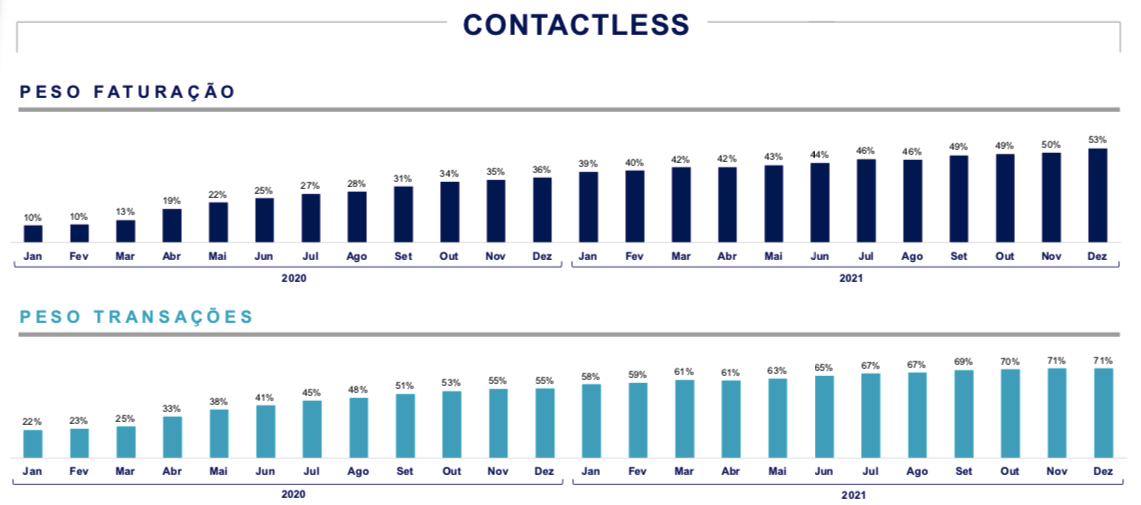
Everything seems to indicate that the pandemic is in the process of turning into an endemic, making room for tourism, after two years of more downs than upsThe number of people who have been exposed to the pandemic is approaching pre-pandemic levels.
Although there are still more doubts than certainties, the next few months will determine whether or not thousands of Portuguese hotel companies continue to operate.
For a return to growth to become a reality, these companies will have to try to innovate and create the right conditions for customers to be attracted to their services.
How? By paying particular attention to the trends that will mark the sector in the post-pandemic and by putting into practice the Marketing and Sales strategies in the Hospitality we have for you. Let's start with the trends.
Trends in hospitality and tourism after the pandemic
Contactless technology
As in other countries sectors of activityOne of the main post-pandemic trends in the tourism operation sector and hospitality in general is the use of the contactless technology not only in payments, but also in bookings and other services provided to the customer during reception, stay and check-out.
Less mass tourism
What many inhabitants of Lisbon, Porto, Barcelona, Venice or London had hoped for may well come to pass in the near future, since one of the most marked trends in the post-pandemic will be the "end" of mass tourism, as holidaymakers avoid large gatherings in favour of larger, more dispersed environments.
Outdoors/Nature
Cities seem to be taking a back seat in this new world of tourism, as tourists tend to favour the outdoors, more rural destinations, contact with nature and the search for more organic experiences.
Flexible cancellation and reservation change policies
Uncertainty is still the order of the day and will continue to be for some time to come. As a result, in order for hotel companies to be able to attract and retain customers, they will need to lighten their purchasing commitment by making their cancellation and rebooking policies more flexible.
Looking for businesses that favour sustainability
The environmental and social awareness of the younger generations (Millennials and Z) leads them, when travelling, to give preference to small family businesses that not only contribute to the development of the economies of the places where they are based, but also claim to be ecologically sustainable.
In fact, reducing the ecological footprint will become a prevalent purchasing decision criterion.
Digital search and purchase
More than a trend, online research and purchasing is now a reality. As a result, hotel companies need to have an efficient presence in a digital market that is becoming increasingly competitive.
Post-pandemic strategies to increase hotel sales
Faced with these trends for the tourism sector in the post-pandemic period, hotel companies have to start thinking about adopting strategies that will allow them to keep up with consumer habits and needs in the times ahead, in order to increase their sales.
Here are some of the most important:
Invest in payment methods aligned with consumer habits and needs
As we mentioned, the contactless technology is one of the main trends for the tourism sector in the post-pandemic period, but its impact on the total turnover of businesses in the most diverse sectors, including hospitality, and on consumer habits has already been visible for a couple of years now.
According to annual report on the portuguese transactional universe prepared by the knowledge solution REDUNIQ InsightsIn December 2021, the contactless payments already accounted for 58% of the total turnover of Portuguese businesses and took part in 71% of the transactions carried out.

If this growth is extraordinary, the expectation is that it won't stop there, since, the report argues, this consolidation of the contactless payments proves that the Portuguese are increasingly embracing new ways of paying based on the use of smartphones or wearables.
These new consumer habits of the Portuguese are therefore "imposing" on businesses the need to adjust their offer in terms of means of payment.
Whether through its Contactless TPAservice DCC- Currency Conversion which, in a simple and fast way, allows your customers to choose pay by card in your home currencyin a transparent, informed and secure manner or through the integrated payment solution for hospitality which, through the integration of TPA (automatic payment terminal) with the main hotel invoicing software, ensures that your customers' check-in and check-out processes are faster, safer and more efficient, REDUNIQ guarantees that national tourist establishments will be prepared for a scenario of increased tourist influx.
In addition to this set of solutions, the following should also be considered Key Enter TPA, a POS solution that will allow you to accept bookings or payments remotely, directly from your payment terminal. In practice, with Key Enter TPA you'll be able to authorise transactions remotely and thus ensure that you don't miss any bookings.
O REDUNIQ's Key Enter TPA It also allows customers to make payments in cases of "no show" - when they haven't used or cancelled the reverse - or "late charge" - for last-minute consumption detected after they have left.
In addition to contactless and reserves, the Key Enter TPA can be associated with the DCC- Currency Conversion and/or the solution Integrated Payments for Hospitality.
Invest in a booking engine
In order to increase sales in the hotel industry, direct search engines are essential. Betting on a direct booking engine will not only give you greater independence from distribution channels, it will also allow you to offer a more complete experience to your customer.
In order for the booking to be successful, you should pay particular attention, among other things, to the quality of the images, check that you have a good description of your hotel and location, include information on extra services, special prices and exclusive promotions, and flexible cancellation policies.
Invest in online communication
Customers live digitally and, as such, it's necessary to invest in your hospitality company's online communication so that you can create links to entice them to buy your services. This investment implies, for example, your active presence on social networks by sharing content that is relevant to potential customers.
Creating relevant and attractive content, both on social media and on your website, will help increase the interaction and reach of your communication. If you combine this with a direct booking engine integrated into your website and Facebook, the likelihood of getting more direct bookings grows exponentially.
Optimise the customer's online experience
It cannot be emphasised enough that, these days, most consumers have their first contact with a product or service via the online channel.
Hotel services are no different, so it's important to simplify your potential customer's online experience by optimising your website and booking engine so that they are responsive and intuitive, with clear language and inviting images.
To make the online experience even more complete, you can also integrate other services such as the online payment solutions from REDUNIQ (REDUNIQ E-Commerce or REDUNIQ@Payments) to make the purchase more secure or a chatbot to make communication more fluid from the very first contact, and even enable online pre-check-in via any mobile device.
To optimise the customer's online experience, you should advertise the booking engine and special offers on your social networks and have a call to action button to encourage immediate direct booking.
Special attention to post-check-out
Customer loyalty doesn't end with the purchase. In addition to the marketing that helps make the booking happen and the service that can make the experience last in the memory, post-check-out is a central element in strengthening the relationship with the customer. Involve the customer and make them feel that their opinion is important to the hotel. Use the feedback you get from them to improve your service and share what your guests say with your community.


